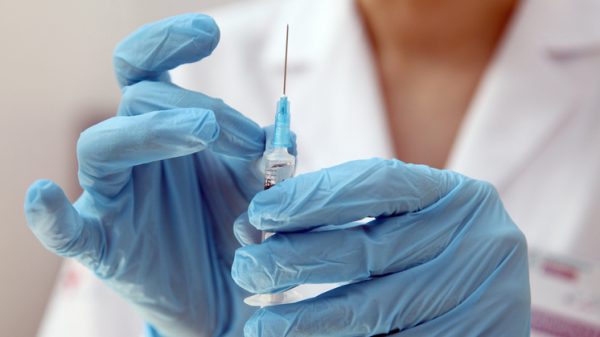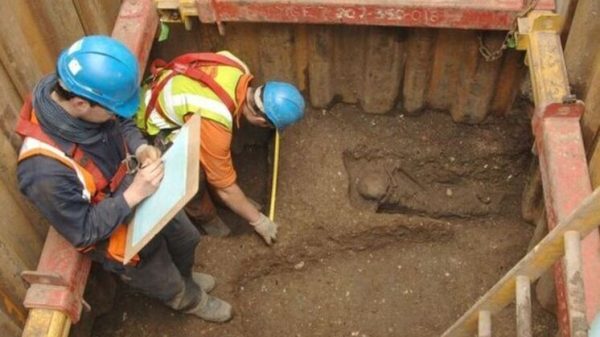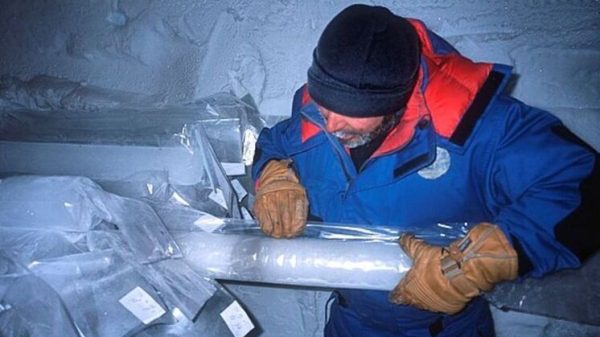 Michelle Donelan called the law «winning.» for parents. Photo: John Lawrence for The Telegraph.
Michelle Donelan called the law «winning.» for parents. Photo: John Lawrence for The Telegraph.
Thursday, the Lords introduced amendments to legislation that introduce broad new obligations for website owners.
Among them are requirements for companies that host pornographic materials. , including social networking sites, to verify the age of all users.
Officials expect most firms to meet tougher criteria by using software that scans a user's head and estimates their age based on facial features.
The technology has already been tested in several supermarkets at self-checkouts to make sure customers Buying age-restricted products such as alcohol are over 18 years old.
Previously, the offerings allowed people to enter details such as a bank card or a photo of an official ID to verify their age. .
Parents 'now have the upper hand'
Ms Donelan, who continued to work on legislation while on maternity leave, said she was alarmed by harmful content that children could freely access.
With the new amendments to the Internet Safety Act, every parent across the country will now have the upper hand in the fight to protect their children online,» she wrote.
“This is a seismic moment in which many parents will feel like a battle they will never win.”
Ofcom, a media watchdog, was ordered to develop guidance on the new rules within 18 months, after which, companies are expected to implement it quickly.
Pornographic sites must apply pre-entry age verification that host mixed content will only be required to use them to shield adult material.
The new rules cover new technologies such as the distribution of «pornbots» on social media and the use of artificial intelligence to create explicit images.
In addition to pornographic material, the bill will also prevent children from accessing other forms of harmful content, such as advocating suicide, self-harm, or eating disorders.
Another amendment introduces a new requirement for companies operating in social networks. ask adult users if they want to use the tools to screen out content that promotes self-harm or eating disorders, or content that is racially or religiously offensive.
Ofcom, the online regulator, will also be required to publish guidance which summarizes steps that services can take to reduce the risk of harm to women and girls and demonstrates best practices.
Parents are fighting for the safety of their children — and they are about to win
Michelle Donelan, Secretary of State for Vacation
Now, in millions of families across the country, parents are fighting a deadly battle for the screens of their children.< /p>
For the first time in history, a generation of kids is just a few clicks away from the extreme violence, pornographic images, abuse and just about every form of harmful content that we as parents travel to the ends of the earth to try to protect them. .
This is the problem that most often keeps me awake at night — both as a politician and as a parent — so I continued to promote and advocate for the Internet safety bill while on maternity leave.< /p>
Consider for a moment that 81% of children between the ages of 12 and 15 report encountering inappropriate content online, and a recent BBFC report found that children as young as seven are unintentionally exposed to pornography. In fact, they found that the majority of children who reported seeing pornography on the Internet did so quite unintentionally. No wonder some parents feel they have no choice but to completely unplug their kids.
But in a world where our lives are becoming increasingly digital, starting at an ever younger age, I don't think we have to choose between these two extremes.
As a new mother, I want my child to grow up feeling safe online so they can enjoy opportunities to learn, discover new things, and connect with friends. In my opinion, these positives should not be achieved at the cost of familiarity with unacceptable material. We have never been a nation that condone the abuse or harm of children, whether online or offline, and we collectively agree that we should never do this.
Enhanced online age verification
With the new amendments to the Internet Safety Act, every parent across the country will now have a head start in the fight to protect their children online. We are strengthening age verification on adult websites to ensure that children are not exposed to inappropriate and harmful content that they would never be able to access in the real world.
It is important that the changes we are making are relate to the problems faced by the families of the victims when accessing the account data of their loved ones.
Social media companies will face tough enforcement action from Ofcom if they try to hide it from coroners. This change means we can offer to shut down more families in the most tragic of circumstances, as well as help shed light on this content to prevent further tragedies in the future.
Messaging platforms will be required by law to take their responsibilities to children use their existing tools—or develop new ones—to ensure that pedophiles who seek to harm them do not use their services as a safe haven.
This is a seismic moment in that, for many, parents will feel like a battle they never intended to win. There is a strong sense of unity among families, government, children's organizations such as the NSPCC, and campaigners from all walks of life across the country to ensure this protection for children. To every parent reading this: We are on your side. And more than that, we will win.
























































Свежие комментарии